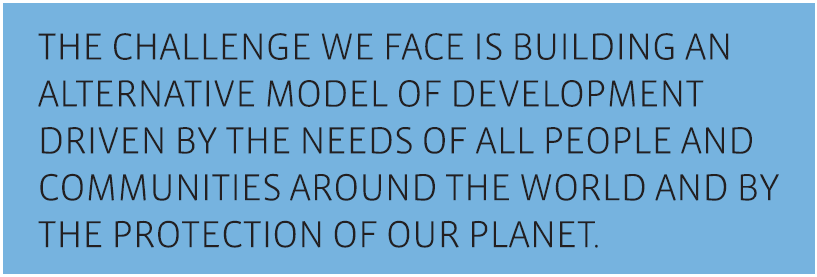:quality(80)/business-review.eu/wp-content/uploads/2021/05/csr-main1.jpg)
Fighting against the effects of the pandemic on local communities and society as a whole was a priority for all companies operating in Romania last year. Their involvement has helped the country overcome this difficult period and given people hope that better times would come.
By Anda Sebesi
This article is an introduction for the main story in Business Review Magazine May 2021 issue, featuring the following exclusive spotlights:
- Fighting against hunger (w/ Manuel Fernandez Amezaga, CEO of Sodexo BRS Romania);
- Driven by responsibility and solidarity (w/ Dragos Mindreci, Country Manager at Betano Romania, Panos Konstantopoulos, Chief Marketing Officer at Kaizen Gaming, and Roxana Ciocanau Dinescu, Marketing Manager – Brand and Communication at Betano Romania);
- Connected to the local community (w/ Oswald Kolb, Manager at Continental Sibiu);
- Raluca Fiterman, CEO Arcadia – Hospitals and Medical Centers: Last year the community and our patients were in focus more than ever;

All over the world, large companies are talking about their values and boasting about how much they care for their employees, the environment, and other stakeholders. The coronavirus crisis was and still is the right time for them to deliver on that commitment. As a recent Harvard Business Review article says, the way companies respond to this crisis will be remembered for decades to come.
The same article points out that research has found that people only truly believe their company has a real purpose and clear values when they see management making a decision that sacrifices short-term profitability for the sake of adhering to those values.
Last year was all about solidarity and finding ways to overcome the crisis generated by the COVID-19 pandemic. With this in mind, many companies in Romania directed their efforts towards supporting local communities or the economic sectors that were hit hardest by this pandemic. From propping up the hospitality and healthcare sectors to building mobile hospitals to treat coronavirus patients, donating hygiene and protective products or medical equipment, and supporting online education, companies joined forces in an attempt to mitigate the impact of the pandemic and make a real difference in this unprecedented context.
Unity, solidarity, and mutual aid have become vital values that should be at the heart of decision-making for citizens, civil society organisations, and institutions at the national, European, and international levels. While citizens have had to act responsibly and comply with the measures and preventive actions recommended by the EU, to reduce their mobility and contain the spread of the virus, national governments have had to show solidarity and act together to fight against this pandemic.

Last but not least, the pandemic has changed the relationship between employers and employees, taking it to the next level. The health and safety of employees became paramount for all companies. According to a new International Labour Organization (ILO) report, collective efforts and solidarity between employers’ and workers’ organisations is critical to responding effectively to the impact of the COVID-19 pandemic in the world of work. In crisis settings, collaboration and dialogue between employers and business membership organisations and workers’ organisations can boost economic and social progress and enable an accelerated recovery.
According to RIPESS, a global network of continental networks committed to the promotion of Social Solidarity Economy, the challenge we face is building an alternative model of development driven by the needs of all people and communities around the world and by the protection of our planet. The window of opportunity is now open to accelerate the process, capitalise on the thousands of ingenious solutions being created within communities, and make positive change permanent and global in all its diversity.
At the territorial, regional and country level, governments need to partner up with different players, who in turn need to be organised in structured networks and organisations themselves, in order to build a national or regional ecosystem that is sustainable and durable.
According to the 8th edition of the study titled “The dynamics and perspectives of the CSR sector in Romania”, conducted by Valoria in partnership with CSRmedia in 2020, 79 percent of surveyed companies included defined social responsibility as a sustainability strategy, 73 percent of the companies focused on health and education in their community interventions, and 40 percent of respondents had implemented between one and five CSR projects.
As for the budgets allocated to CSR projects, 15 percent of the companies included in the study said that their CSR budget was between EUR 100,000 and EUR 200,000 last year. In addition, the same source says that last year’s CSR budget was similar to the 2019 one for 41 percent of surveyed companies.



:quality(80)/business-review.eu/wp-content/uploads/2024/06/cover-employers-to-watch.jpg)



:quality(80)/business-review.eu/wp-content/uploads/2024/06/22C0420_006.jpg)

:quality(80)/business-review.eu/wp-content/uploads/2024/06/COVER-1-4.jpg)



:quality(80)/business-review.eu/wp-content/uploads/2024/06/br-june-2.jpg)
:quality(50)/business-review.eu/wp-content/uploads/2024/07/vodafone-RO.jpg)
:quality(50)/business-review.eu/wp-content/uploads/2024/07/BeFunky-collage-37-scaled.jpg)
:quality(50)/business-review.eu/wp-content/uploads/2024/07/04_ThinkPad_T14s_6_Business_Coworking.jpg)